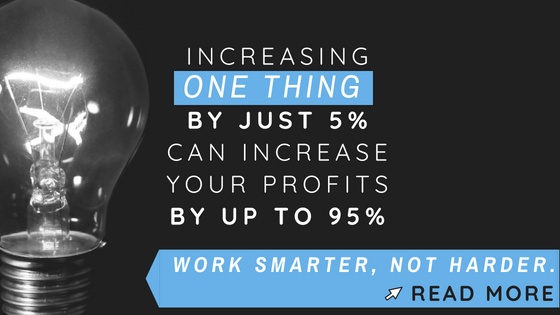Permission to play: 5 reasons to have more fun and 4 tips to make it happen.
If all you do is work, work, work, work, work (Rihanna voice)—you might be too productive. And, yes. That's possible.
Trust me, I understand the sense of pride and accomplishment you get after demolishing a long to-do list. But, hyper-efficiency on a daily basis could actually hold you back.
We're wired to think that work and play are opposites, but in fact, they go hand-in-hand.
"Unfortunately, play has been saddled with the stigma of being fruitless, frivolous, and only for kids. But, play is quite the opposite. Engaging in play not only heightens creativity, it also strengthens our ability to adapt to change, which is essential to evolution and survival." - Halley Bock, author of Life, Incorporated: A Practical Guide To Wholehearted Living.
"All work and no play" is a bad business practice. You can only sprint through the day for so long before you become indifferent, bored or burnt-out.
5 benefits of play include:
- Play speeds up learning, enhances productivity and increases job satisfaction.
- Research supports that self-directed play, for children and adults, helps develop resilience, independence and resourcefulness. It also makes us better equipped to handle complex and unpredictable situations, both in social and non-social situations.
- Do you get your best ideas when you're out of the office? That's because we need psychological distance. Our minds are more likely to think creatively about the things we aren’t experiencing right here, right now.
- Play helps us connect with other people because we're open in a way that allows us to feel safe.
- The right hemisphere of the brain can grow throughout life and play is one of the best ways to grow it! This includes brain functions which are fundamental to happiness and morality.
Have you given yourself permission to play yet? If not, take some baby steps. We're not saying to cut your work-time in half or shred your to-do lists. We're simply suggesting to have a little fun.
Here are 4 tips to help over-productive people have more fun:
- Take play time seriously. Find an activity that truly makes you happy, make it a reoccurring appointment in your calendar and treat it like a client meeting. Self-care impacts every area of your life.
- Unplug. Do you feel obligated to answer emails and calls at all hours? Whether it's the early morning or dinnertime, give yourself time each day to put the phone away.
- Remember the "why." Know the benefits of playtime and downtime like you know your call-to-purchase ratio. Taking 30 minutes away from work might feel impossible in the moment, but in the long run — you'll be better for it. Even a brief diversions can drastically improve your focus.
- Incorporate fun into your existing schedule. Play a card game with colleagues, golf with a client or make mundane office tasks into a friendly competition.
Are you a recovering workaholic? If so, leave a comment with your best tips for people stuck in the "work, work, work, work, work" phase.

Bri Cappella, Integrated Marketing Specialist
Bri is an over-enthusiastic dog mom, pop culture fanatic and Instagram addict. She enjoys eating pizza, practicing yoga and hiking.
DISCLAIMER
The information contained in this blog post is intended for educational purposes only and is not intended to replace expert advice in connection with the topics presented. Glatfelter specifically disclaims any liability for any act or omission by any person or entity in connection with the preparation, use or implementation of plans, principles, concepts or information contained in this publication.
Glatfelter does not make any representation or warranty, expressed or implied, with respect to the results obtained by the use, adherence or implementation of the material contained in this publication. The implementation of the plans, principles, concepts or materials contained in this publication is not a guarantee that you will achieve a certain desired result. It is strongly recommended that you consult with a professional advisor, architect or other expert prior to the implementation of plans, principles, concepts or materials contained in this publication.
This blog post may contain the content of third parties and links to third party websites. Third party content and websites are owned and operated by an independent party over which Glatfelter has no control. Glatfelter makes no representation, warranty, or guarantee as to the accuracy, completeness, timeliness or reliability of any third party content. References to third party services, processes, products, or other information does not constitute or imply any endorsement, sponsorship or recommendation by Glatfelter, unless expressly stated otherwise.
Related posts
Here are five ways you can build, expand and strengthen your professional network on LinkedIn.
Telling a story doesn’t have to be long or complicated—in fact, sometimes simple is best.
So, you’ve signed up for LinkedIn, filled in all of the basic information (like your work history and education) and contact information—what’s next?







Submit a Comment